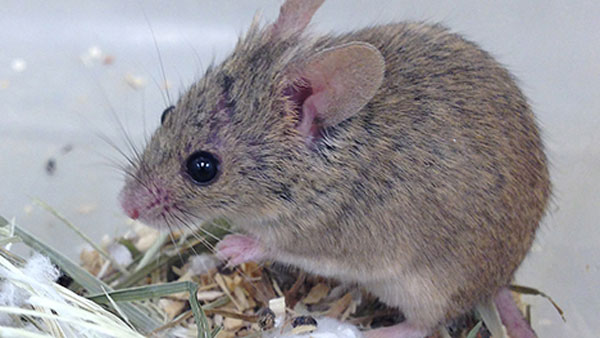An Oklahoma State University scientist studying the effects of abnormally expressed imprinted genes on embryonic development and maternal behavior has been awarded a four-year, $720,000 National Science Foundation grant. The award will fund the investigation of an area of genomic research that has yet to be explored, said Polly Campbell, assistant professor in OSU’s Department of Integrative Biology and the project’s lead investigator.
For Campbell, the NSF grant is her first. The biologist and her collaborators will use advanced genetic tools and behavioral studies in mice to better understand how dysregulation of imprinted genes affects brain development and behavior. Research also suggests these genes may regulate a mother’s instinct to care for her offspring, which can be disrupted if imprinted genes are not expressed normally.
“What are the consequences of dysregulation of these genes that are critical, not only to embryonic growth and development, but specifically to brain development?” Campbell said. “That’s one thing we’re interested in.”
Gene expression means the translation of information stored in DNA that provides instructions to cells. Like most genes, imprinted genes are inherited from both parents, one copy from mom and one from dad. What is unusual about imprinted genes is that only one copy is normally expressed; for some imprinted genes it's the maternal copy, for others it's the paternal copy. In humans, disrupted expression or deletion of imprinted genes is often associated with physical and cognitive abnormalities and is the cause of several genetic disorders, including Angelman syndrome and Prader–Willi syndrome.
Imprinted genes are highly expressed in two places – the placenta, where it influences nutrient supply to the embryo and the production of placental hormones, and in the developing brain.
Campbell’s research takes advantage of a cross between two closely related species of mice whose hybrid offspring are characterized by abnormal imprinted gene expression.
For Campbell, her team’s novel research using mice has potential relevance to human health.
“It’s important ultimately for human health to think about how dysregulation of these genes might potentially affect mothers and may correlate with imprinting disorders in humans,” Campbell said. “It’s an area that we really don’t understand yet.”
The research, though built on previous work, is also novel, Campbell said, because it’s exploring how disruption of imprinting in hybrid placentae may affect circulating hormone levels and behavior in otherwise normal mothers.
“As far as I know no one has ever thought about how carrying these (hybrid) embryos might affect their maternal behavior,” she said.
The research will investigate these occurrences at the genome level. Research will include sequencing to measure genomic-wide expression and DNA methylation, or the modification of DNA essential to imprinting. The group will also conduct behavioral studies of pregnant and nursing mothers to better understand how loss of imprinting in the placenta may affect maternal physiology and behavior.
Campbell is collaborating with fellow OSU faculty Jennifer Grindstaff, associate professor and an endocrinologist, and assistant professor Charles Chen, an expert in genomic analysis. The group is also working with Julie Angle in the College of Education, who will work with future and current science teachers to develop high school science curriculum based on Campbell’s research. Teachers will also experience hands-on research in Campbell’s lab. A key part of NSF-funded grants is translating research to enhance scientific literacy.
